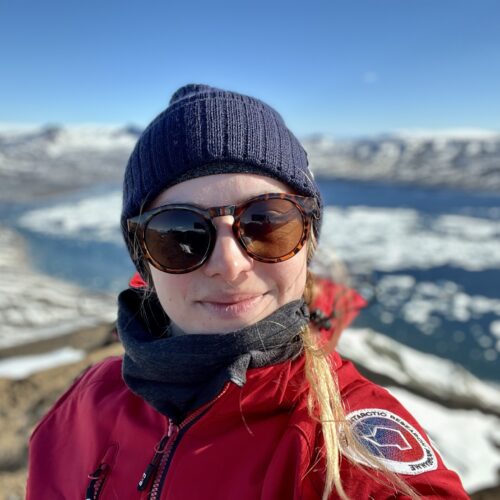
Lucie Ráčková becoming an astronaut is not an unattainable goal
We would like to share with you the story of our colleague Lucie Ráčková from Masaryk University. Lucie is a researcher and her work is fascinating.
Lucie Ráčková is doing research on stress in Antarctica. Her work focuses on the trajectory of acute and chronic stress in isolation experiments. In 2022, Lucie Ráčková embarked on a four-month expedition to Antarctica, an amazing achievement in itself. And today, she is probably the only Czech woman to graduate from the prestigious Space Studies Program at the International Space University.
Lucie Ráčková is a great example of how courage, interest in science and hours of hard work can lead to incredible results.
In the summer of 2023, you graduated from the Space Studies Program, an intensive program focused on space studies. In 2022, you spent three months in Antarctica. How did you go from studying stress in Antarctica to space?
While studying anthropology and biology at MUNI, I wasn’t that interested in space because I didn’t know it was possible to realistically pursue it. I was interested in the topic of stress. When I got to Professor Dobrovolná at the end of my Master’s studies, she offered me a topic for my PhD that would explore stress in isolation experiments and isolated geographical areas. Moreover, the topic would also focus on space research. And I found that attractive.
But going to Antarctica is easier than going to space…
In the Czech Republic, space exploration with the use of a human crew has not been dealt with much until recently, so I first dealt with this part theoretically from literature research. But Masaryk University has a station in Antarctica, so I joined last year’s expedition and researched the stress there. To do this, I used Entrant technology, developed by my supervisor Julie Dobrovolná, which measures stress using an innovative thermodynamics-based method, alongside more conventional methods.
The Entrant technology was transformed into Entrant by a spin-off in 2020. It should enable better prediction of stress in spaceflight conditions, so the technology was supported by the ESA BIC Czech Republic business incubator.
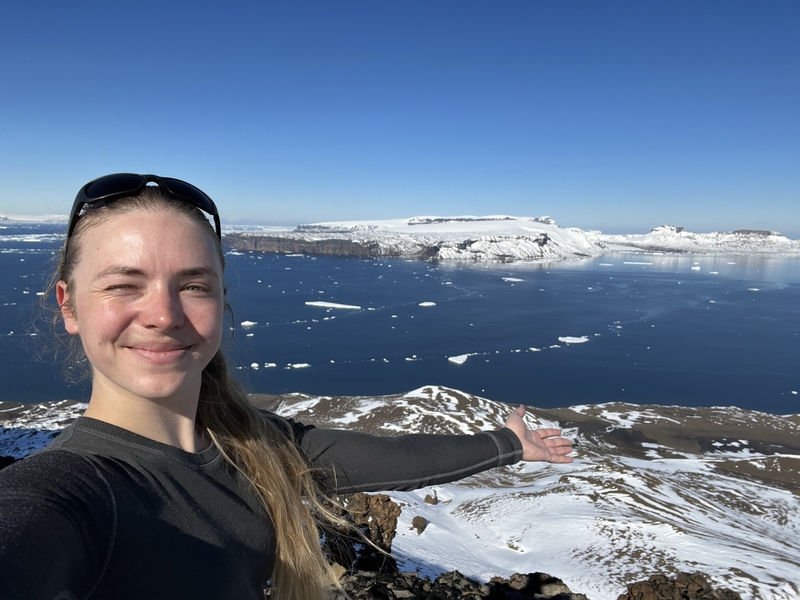
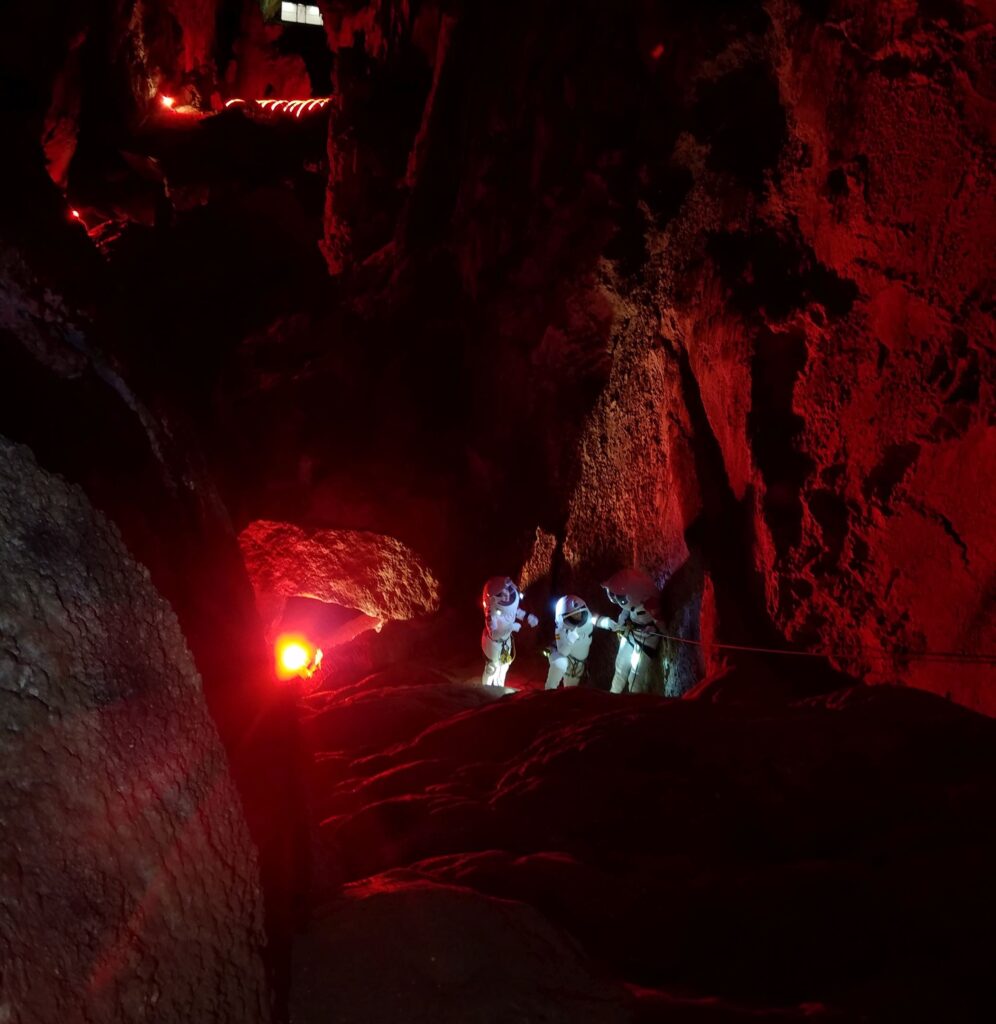
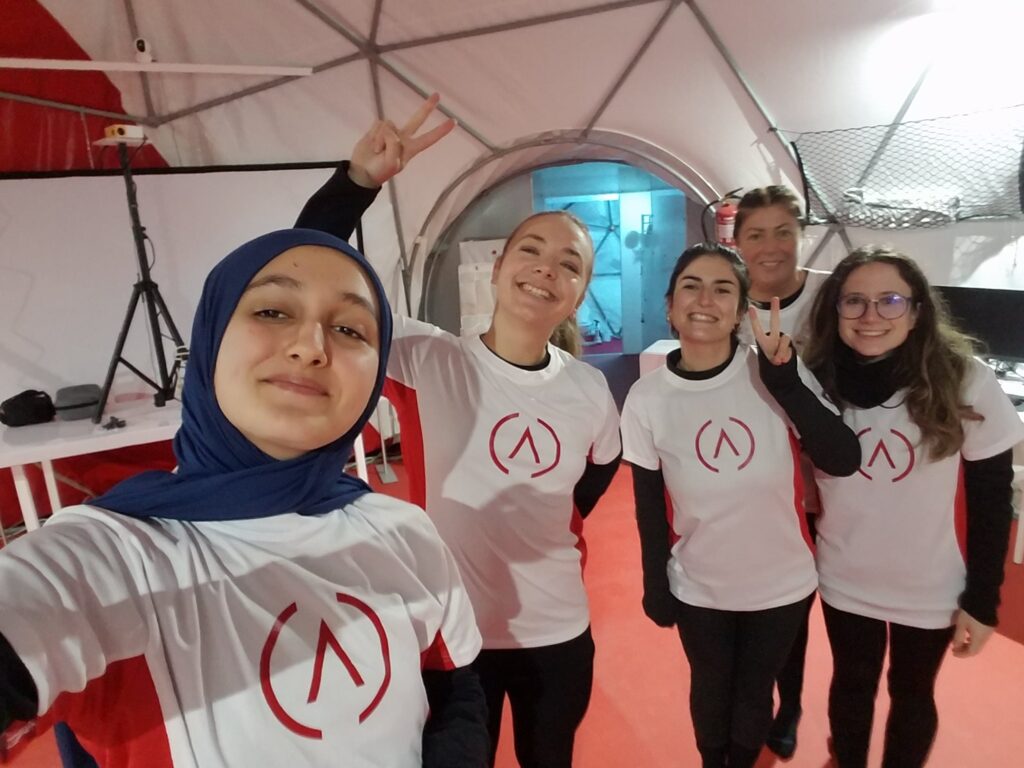
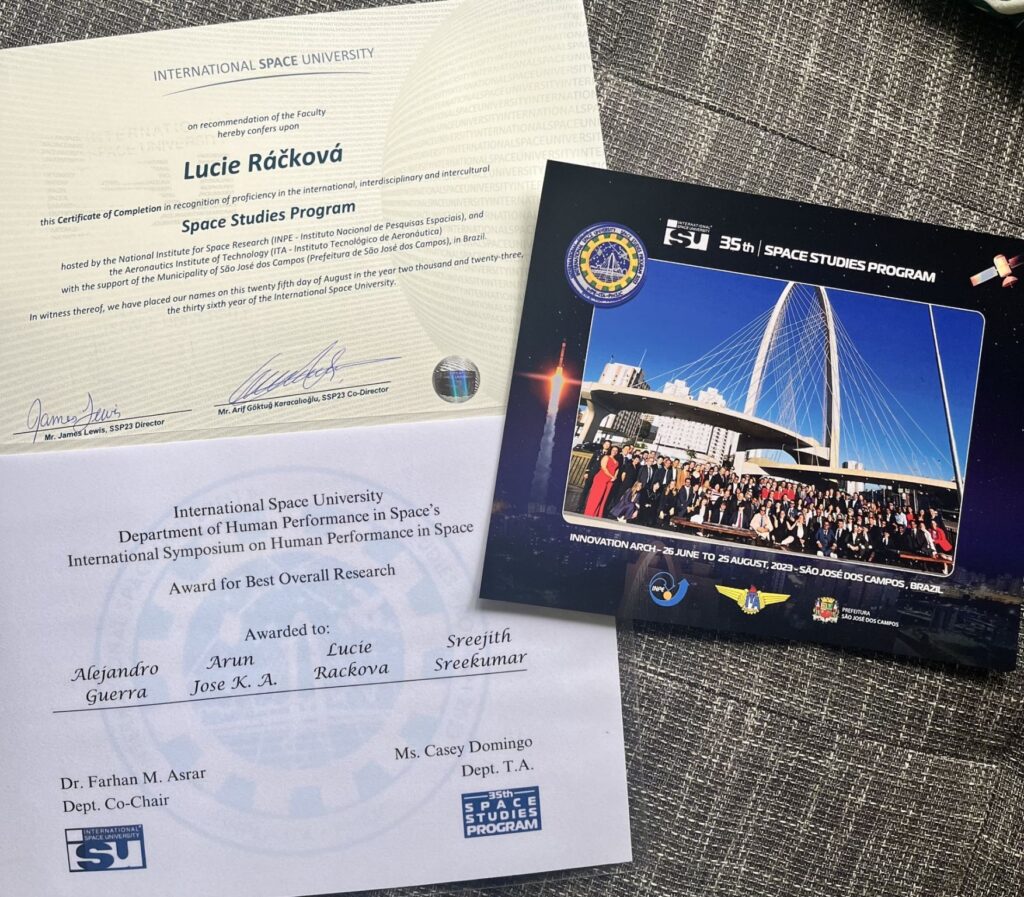
So the Antarctic mission already had some connection to space. What were your next steps?
After returning from Antarctica, I had the opportunity to take part in a mock analogue mission. It was organised by the Czech company ICEE.Space, also incubated in ESA BIC. I submitted a proposal for the Entrant app to measure the stress of the trainee astronauts and it got me into the community of people who actually work in space operations, develop space technologies, have ambitions to go to the moon in the future or simply have space as a hobby. Thanks to them, I became much more interested in space.
Subsequently, you applied for the intensive Summer Space Studies Program organized by the International Space University. What were the prerequisites for participation?
The applicant must have at least a Bachelor’s degree or equivalent, then a cover and recommendation letter, a CV and some results of his/her work are essential. And then, of course, the participant must secure funding. The programme cost 20,000 euros. For me, more than half of it was paid for through a scholarship from the European Space Agency, another part of it through a scholarship from Masaryk University, and another large part of it came from the Donio crowdfunding campaign. With this I want to thank the university, but especially all the people who contributed from their own pockets.
The programme lasted nine weeks and this year took place in Brazil. How did it work?
We had about 85 participants, and there were even more speakers. The program had several parts. The first one was mainly theoretical, ending with an exam. Then there were workshops, which we signed up for according to our interest, and we also worked on several projects in the course. It also included visits to various facilities involved in the space sector or human research, such as those focused on Earth observation or satellite manufacturing and testing.
Can you give some examples of projects?
For example, the Smart Cities project looked at how to use space technology in the development of South American cities, and the Water Security project looked at using space technology to solve water problems. Another project addressed the problem of the growing number of satellites in orbital space.
I was part of a project called Metaverse (The Metaverse role in the future of the space sector), led by Jim Green, former Chief Scientist at NASA, now Chief Scientist at MetaVisionaries, a company using metaverse for space education. Our task was to explore the potential applications of Metaverse in the space sector. So, again, we had a series of lectures, hands-on exercises, and from that we produced a report and some vision for development. I was the Chief Editor, I was working on the texts into a coherent form, and I was also working on a chapter on how Metaverse and its use in space applications can be a good link for the so-called “emerging space countries”, i.e. those that don’t fly into space, i.e. are not key players in the space field, but have ambitions in this area.
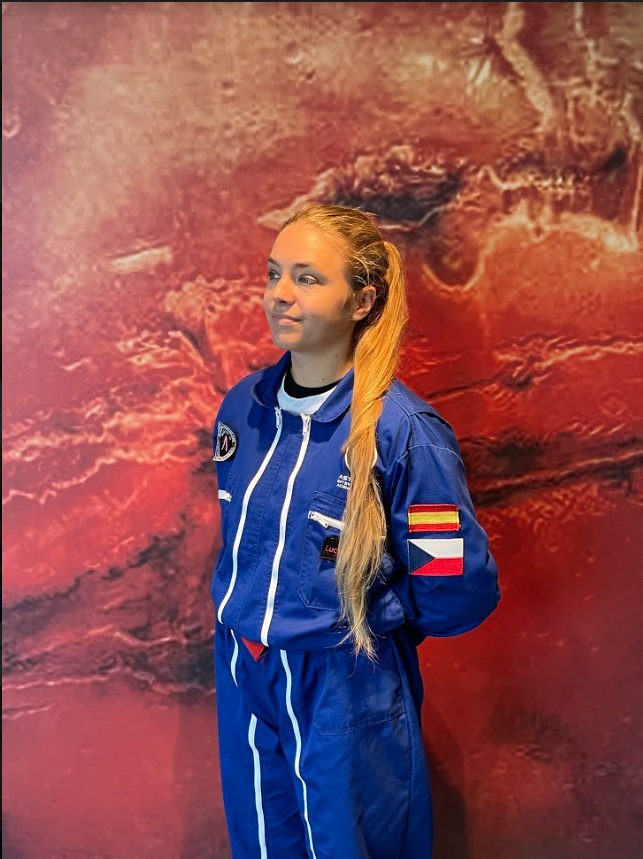
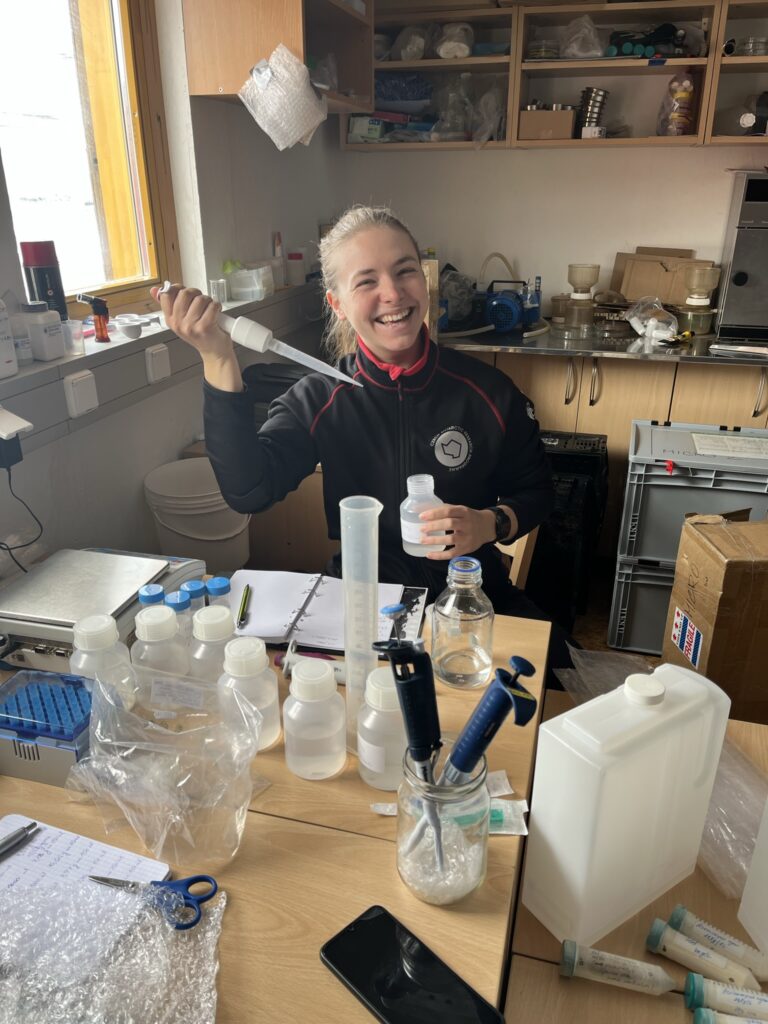
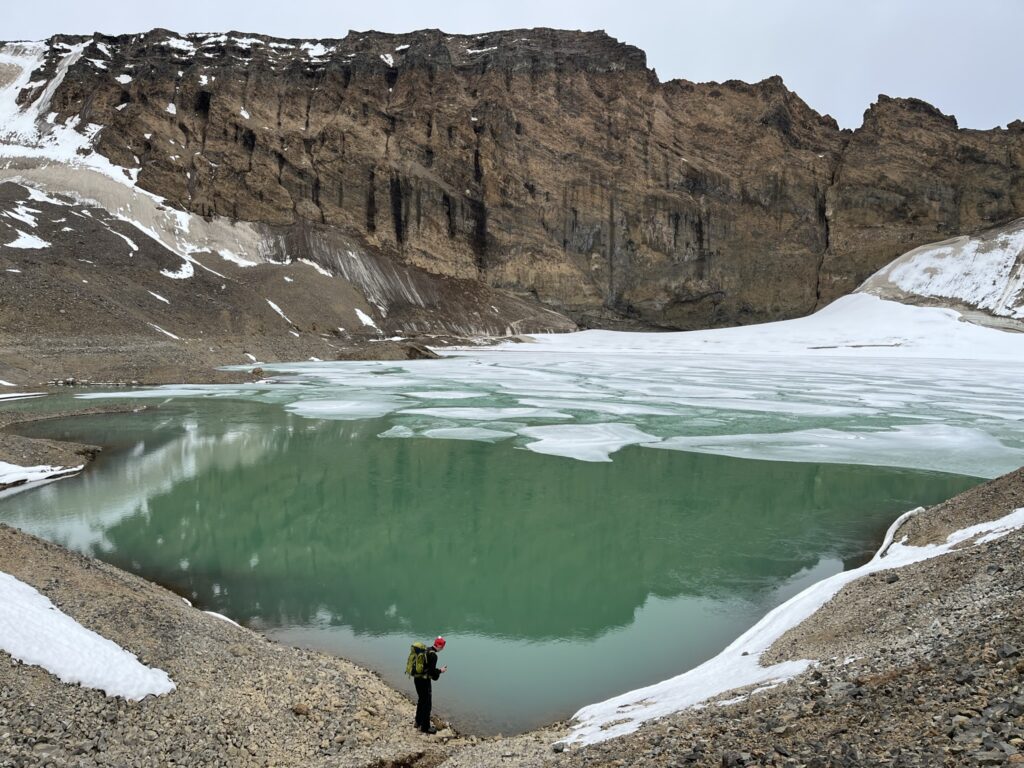
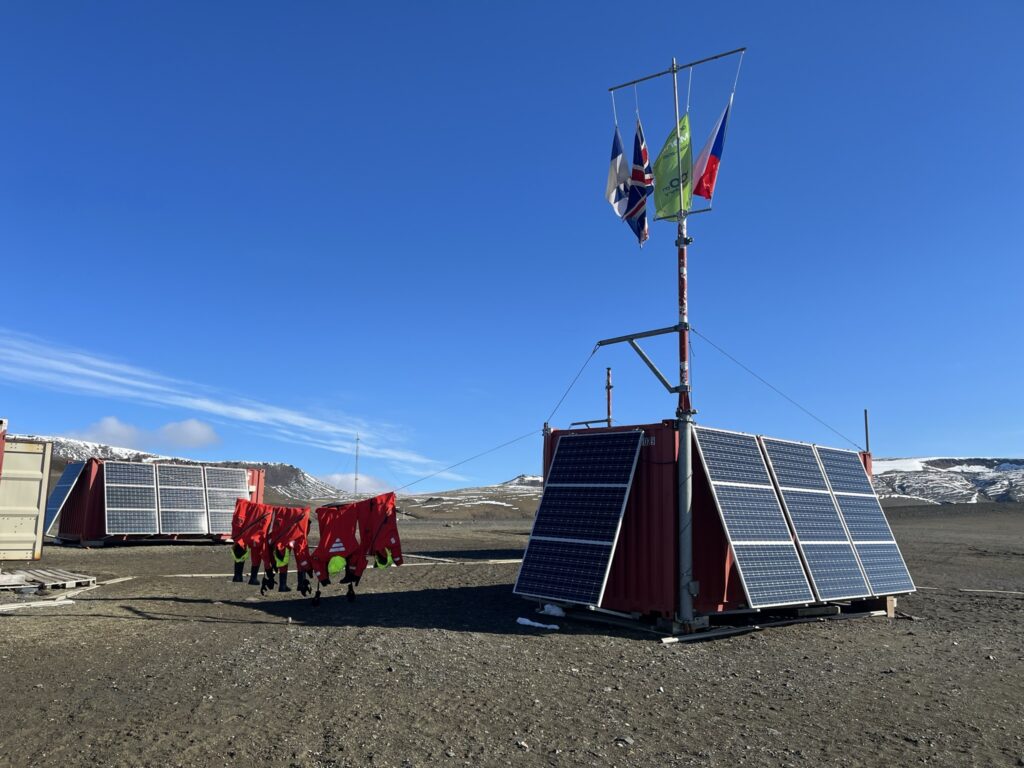
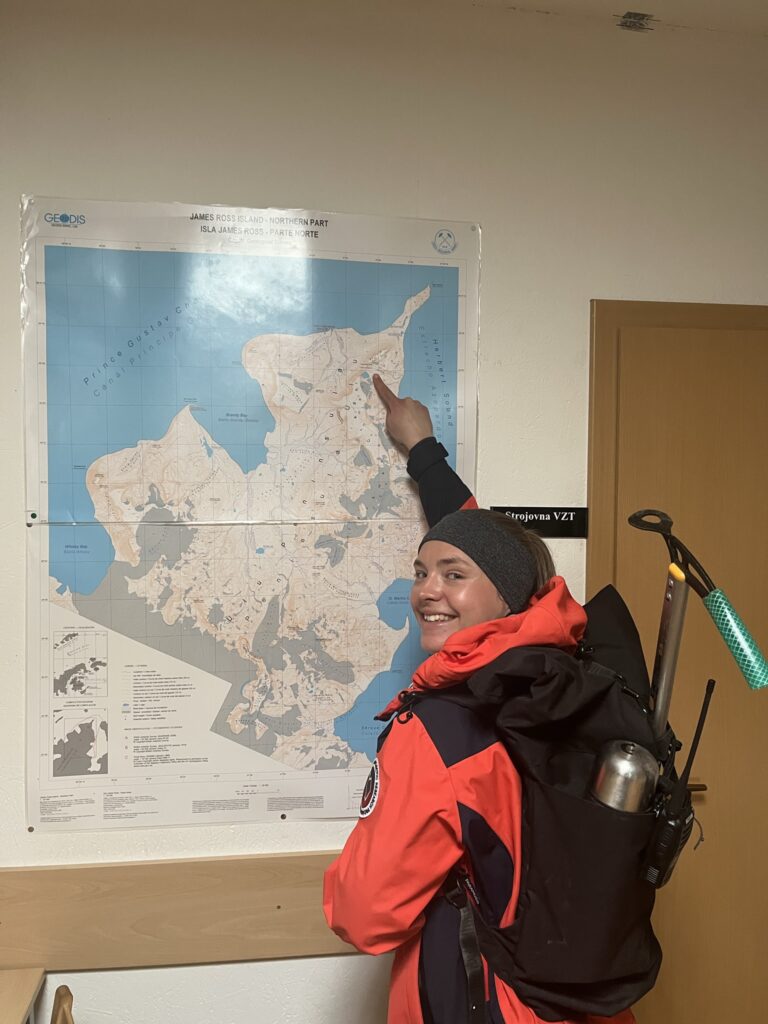
What has the Space Studies Program brought you?
First of all, I got into a community of people who are in the space sector or studying space. They include representatives from both government organizations and the private sector. In addition to the contacts, which will open many more doors, I have gained an understanding of how the space sector works, even beyond my field. I have gained fundamental knowledge – from politics, to cultural frameworks, to orbital mechanics or geological processes. This helps one find one’s place in the space industry. It’s been great.
Was the Space Studies Program stressful for you?
It was stressful, it was challenging. It’s built to get as much information as you can in a short amount of time. So we were always studying, we had a lot of field trips in between, and we also did social activities because the program encouraged networking. There wasn’t much sleep and it was really challenging. But it was worth it.
Which excursion interested you the most?
We went to see a really impressive Paralympic centre. In the huge athletics complex we watched the para-athletes train, but we also had fun with them. When I asked if they knew about the possibility of ever being astronauts, they didn’t think about it at all. In fact, in space, certain types of disabilities can be an advantage because para-astronauts may not be as concerned with muscle loss, which is a common problem for astronauts. For example, a person without legs is lighter, eats less, thus produces less waste, so taking such a person into space is ultimately more environmentally friendly. Also, para-athletes tend to have higher mental resilience and are used to pushing their limits. Even in their own words, the possibility of being a paraastronaut would greatly enhance their sense of purpose and their feeling of being rightful members of society. I find it very meaningful to promote the idea that becoming an astronaut is not an unattainable goal.
What are your next steps towards space?
For example, I’m now going on a Space Medicine course at the Space Innovation Lab at the University of Oxford in collaboration with Meta Visionaries and International Space University. I am also preparing project applications for projects in microgravity.
I want to continue to pursue space in my post-doctoral studies, although I don’t know exactly how that will turn out. I am now a research leader at the Jordan Space Research Initiative. The initiative aims for Jordan to participate in both space and analogue mock missions, and they want the mock missions to be used not only for research but also to address the challenges of the Sustainable Development Goals set by the UN in 2015. For example, Jordan has problems with access to health care, dust, water or insufficiently smart urban infrastructure, and it is for the development of these areas that the findings of the mock missions could be used.
I also want to apply for the Space Studies Program again next year, but this time as a teaching assistant with my own workshop. Next year’s program will be at the Johnson Space Center in Houston, and this is an incredible opportunity that I would love to grab.
So I recommend giving the program a try for anyone interested in space. Feel free to reach out to me, I’d be happy to help.
https://brnoregion.com/cs/novinky/lucie-rackova-stat-se-astronautem-neni-nedosazitel